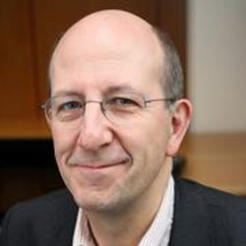Commercial “charity of the year” partnerships could die out, as corporations move to a culture of sustainability and corporate social responsibility rather than charity and philanthropy, according to speakers at the Charity Finance Leadership Forum yesterday.
The Forum, which saw around 35 finance directors network and knowledge-swap, included a session on charities and business. Delegates heard presentations from Oxfam and Marks & Spencer, which currently have a corporate partnership, and John Williams a board member at Business in the Community and co-founder of Fishburn Hedges.
Williams told the audience that charity of the year partnerships were under threat:
“It seems to be in decline,” he warned, “There is a nervousness that this excellent and understandable cash cow for the voluntary sector is at risk.”
Williams said the decline was due in part to companies focussing more on corporate social responsibility (CSR) rather than philanthropy over the last couple of decades:
“With riots such as in Brixton, came the rise of the CSR agenda and a focus on helping society. If you don’t have society there is no market or employees. There is a clear business case for CSR,” he said.
Williams continued with a warning that charities were just one route for businesses to achieve their CSR goals:
“Companies are creating their own bespoke programmes, and even their own charities.
“Outside the billionaires club, you don’t hear philanthropy in the corridor of corporations. There is a risk that traditional charities will be marginalised over the next few years.”
He advised that charities need to adopt a more strategic approach with businesses, who were increasingly seeing them as 'suppliers' of a service.
Williams’ views were shared by Mike Barry, head of sustainable business at Marks & Spencer who said the retailer was changing its focus from charity to sustainability.
“It’s the word of the future,” he advised, “It’s about sustainability, not charity. The world of business is changing. If you are waiting for a pure philanthropic output you are not going to get it.”
Marks & Spencers’ partnership with Oxfam strives to create a holistic supply chain with its clothing. When a person donates Marks & Spencers clothing to Oxfam, they get a five pounds voucher to spend at M&S.
“It means we can divert 4,500 tonnes of clothing from a landfill,” said Barry.
“We sell 2.7bn food and clothing items a year. There isn’t enough stuff in the planet to consume that much. So we are on a journey to change the way we do business.”
Barry also said that too many charity partnerships stood still, and advised partners to keep on "reinventing”. He also said there was a global trend developing: “Don’t be just seduced by UK-centric,” he advised.










